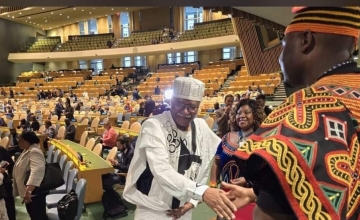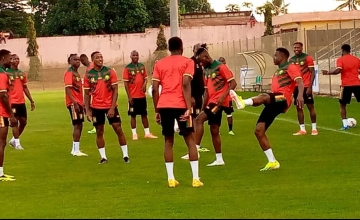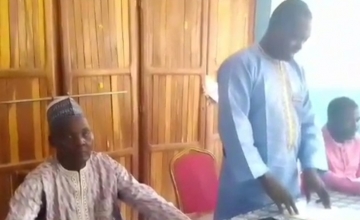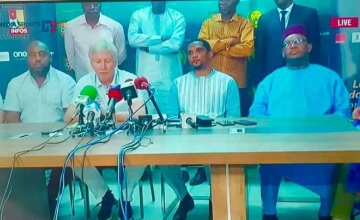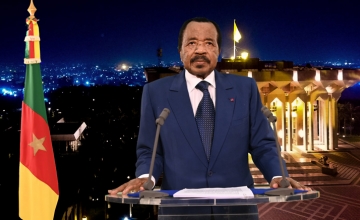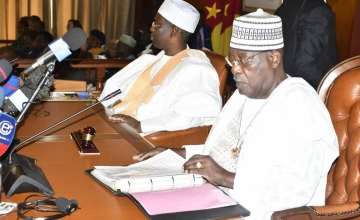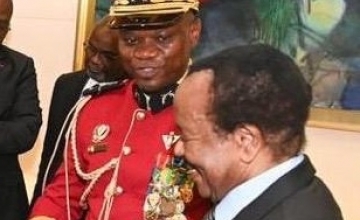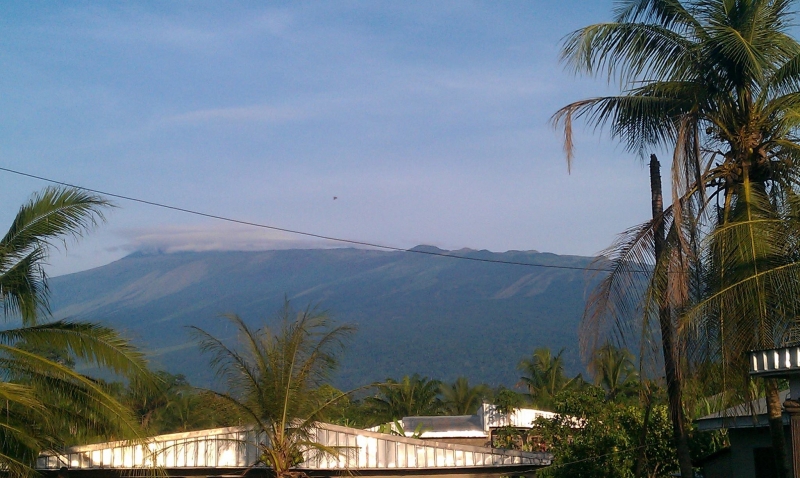
Army soldiers killed at least nine civilians in Cameroon’s Anglophone South-West region, on January 10, 2021, Human Rights Watch said Thursday, February 4. “The dead included a woman and a child, and four civilians were injured. The soldiers also looted scores of homes and threatened residents.”
Human Rights Watch recalls that when news of the killings went viral, Cameroon’s army spokesperson admitted that soldiers from the 21st Motorized Infantry Battalion (Bataillon d'Infanterie Motorisé or BIM) conducted an operation in the village, but did not acknowledge that troops killed and injured civilians.
Navy Captain Atonfack Guemo Cyrille Serge, Head of Communication Division, Ministry of Defence said the military operation in Mautu was “carried out in strict compliance with the results of engagement”.
“Killing civilians and looting their homes in the name of security are serious human rights crimes that fuel the escalating cycles of violence and abuse in Cameroon’s Anglophone regions,” said Ida Sawyer, deputy Africa director at Human Rights Watch. “Cameroonian authorities should rein in abusive units and, with the assistance of the African Union and United Nations, establish a credible, impartial inquiry into the Mautu killings and prosecute those responsible.”
In a dispatch Thursday, Human Rights Watch said it interviewed by telephone 17 witnesses, including five relatives of victims, about the attack.
“This area has been severely affected by violence between government forces and armed groups seeking to separate the Anglophone North-West and South-West regions from Cameroon since late 2016. Separatist groups operate in the area around Mautu, and residents said they come to Mautu to buy food and collect water,” the report read.
“Médecins Sans Frontières (MSF), the international non-governmental health organization, treated four people with gunshot wounds, including a child. Human Rights Watch obtained lists of the nine people killed from four sources and spoke to relatives and residents who either attended burials or took victims’ bodies to the Muyaka hospital mortuary. These details correspond with the information Human Rights Watch obtained independently from other witnesses.”
Human Rights Watch said it shared its findings with Navy Captain Atonfack Guemo, Cameroon’s army spokesman, in a January 22 email, requesting answers to specific questions.
“Atonfack Guemo replied on January 26, failing to address Human Rights Watch's questions, and instead gratuitously dismissed the evidence of unlawful killings as fabricated,” the international human rights NGO said.
The report quotes witnesses as saying that “over 50 soldiers, including members of the BIM, entered Mautu on foot at about 2 p.m. on January 10 and started shooting indiscriminately as people fled. The witnesses said that soldiers killed nine people, including a 50-year-old woman and a 6-year-old girl, and went house-to-house searching for separatist fighters and weapons, threatening residents and looting people’s belongings.”
Human Rights Watch says international media outlets and Cameroonian human rights groups confirmed the accounts they got from witnesses.
They write that a 30-year-old woman, who witnessed the killing of her 28-year-old neighbor, said: “I saw how the soldiers went to his house, which is next to mine. They took him outside, kicked him, beat him with their guns and hands, and then shot him several times. It was the most frightening experience of my life.”
Navy Captain Atonfack Guemo, Cameroon’s army spokesman, in a January 11 statement said “terrorist groups” attacked soldiers from the 21st BIM while they were carrying out a “preventive raid” in Mautu on January 10, and that the soldiers responded by killing several “terrorists” and seizing their weapons.
“But witnesses and residents said that there was no confrontation between armed separatist fighters and soldiers, that at the time of the attack separatists were not in Mautu, and that soldiers deliberately killed civilians,” Human Rights Watch reported.
“The military just came to kill us,” a 32-year-old man from Mautu told Human Rights Watch. “There were no Amba [separatists] around at the time of the attack. The soldiers arrived and fired at villagers as they fled. Separatist fighters come at times to Mautu to get supplies, but they don’t live here, and we don’t shelter them. We are also afraid of them.”
Residents told Human Rights Watch that the attack was a reprisal against the population the army accuses of sheltering and supporting separatist fighters. Five witnesses said that, during the attack, soldiers addressed scores of residents, including women, who had been rounded up in the center of the village and threatened them. “They warned us that they would come back and kill more people if we did not show them where the amba [separatists] were,” a 60-year-old man told Human Rights Watch.
Witnesses reported to Human Rights Watch that the village is now almost completely empty as people fled to the bush or nearby cities and villages, fearing renewed military attacks.
“There is no one around,” a 36-year-old witness who remained in Mautu told Human Rights Watch. “Only a few of us stayed behind. The people are afraid that the army can come back.”
Below is an extract of the Human Rights Watch report
“In his January 11 statement, the army spokesperson claimed that ‘terrorist leaders’ fabricated ‘a jumble of gruesome images’ in order to blame the Mautu killings on the army.
“However, Human Rights Watch obtained six videos and three photographs showing the aftermath of the attack and spoke to the man who made the videos and photographs. ‘Soldiers attacked us and shot at people indiscriminately,’ he said. ‘I fled and hid into the nearby bush. When soldiers left, I came out and filmed those videos. This is real footage, showing real people massacred by those who pretend to protect us.’
“Human Rights Watch matched the victims filmed with the descriptions of the victims known to have been killed, observed injuries consistent with those described by witnesses, and found no evidence of this visual material online before the date of the attack. The videos and photographs show the bodies of seven men, one woman, and a child as well as two injured women and one injured child. The videos were all captured in daylight, and pooled blood is visible in some, which, along with a lack of insect activity around those deceased, leads Human Rights Watch to believe that the videos were captured within hours of the attack.
“This is not the first time that security forces attacked Mautu. Witnesses and residents said that soldiers carried out several operations in Mautu in 2020, as well as on January 1, 2021, when they surrounded the village, searched and looted homes, and harassed and beat people. ‘On January 1, at 6 a.m., lots of soldiers invaded our village,’ a resident said. ‘They broke into my home and rounded me up with other men in the center of the village. They said they would take us all to the military camp unless we showed them where the amba [separatists] were. They beat some of us. They slapped me four times.’
“The January 10 killings led to a public outcry and was widely condemned in Cameroon and outside.
“Two prominent Cameroonian human rights groups, the Centre for Human Rights and Democracy in Africa and the Human Rights Defenders Network in Central Africa (Réseau des Défenseurs des Droits Humains en Afrique Centrale or REDHAC), denounced the attack and called for an independent inquiry. The UN special representative of the secretary-general for Central Africa and head of the regional office for Central Africa expressed concern about the killing of civilians and called for an independent investigation.
“The UN Secretary-General on January 15 urged the Cameroonian authorities to bring those responsible for the attack to justice and reiterated his call on all parties to cease hostilities and engage in a political dialogue to end the crisis in the North-West and South-West regions. The French ambassador to Cameroon condemned the killings and demanded that “the facts of this unjustifiable crime be clarified.” The Canadian and British High Commissioners in Cameroon, as well as the United States embassy in Cameroon, also expressed their concern and called for those responsible to be held to account.
“This is not the first time that Cameroonian authorities have denied that army troops killed civilians in the Anglophone regions, Human Rights Watch said. In February 2020, government forces killed 21 civilians, including 13 children and a pregnant woman, in Ngarbuh, North-West region, in a reprisal attack against the population accused of supporting separatist fighters. The government initially denied the army was responsible, but later established a commission of inquiry leading to the arrest of two soldiers and a gendarme. Their trial started on December 17.
“As Cameroon’s army tries to root out separatist fighters in the Anglophone regions, soldiers are instead targeting, abusing, and even killing civilians,” Sawyer said. “The authorities should send a strong message that such crimes will no longer be tolerated by investigating and prosecuting those most responsible for the Mautu massacre and by compensating victims and their families.”


